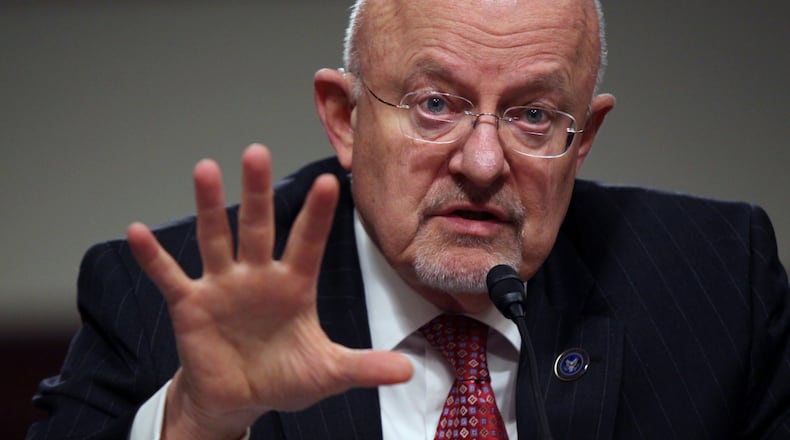Somewhere in Moscow, Edward Snowden is smiling. And he ought to be.
Almost two years ago now, Snowden leaked information that for the first time exposed the scale of spying conducted routinely, and without warrants, by the U.S. government against its citizens. He did so not to harm the country, he said, but instead to alert his fellow Americans about what their government was doing in secret, in his opinion in violation of the Constitution and the law. The American people at least ought to know, he said, because once armed with information they could make their own decisions about whether such spying was legal, constitutional and necessary.
That is exactly what is happening.
Earlier this month, a federal appeals court decided that the spying was not legal, ruling that the collection of so-called metadata -- data revealing every phone call, email or text message that you send, to every person, how long you spoke and from where -- far exceeded the surveillance authority granted by Congress in the Patriot Act.
And last week, Congress itself balked at reauthorizing the Patriot Act, which is scheduled to expire June 1. The House of Representatives has passed a bipartisan alternative bill -- itself a minor miracle -- that extends some provisions of the Patriot Act while significantly restricting government surveillance in other areas, including the bulk collection of metadata. The Senate last week came three votes short of the 60 needed to pass that alternative, called the USA Freedom Act.
If those three votes can't be found in the next few days, the entire Patriot Act will expire and Congress will be forced to start over again. That would be fine with me.
It's important to note that none of this debate would be happening if the federal intelligence community had its way. Before the Snowden revelations, Director of National Intelligence James Clapper was asked point blank by Congress whether such programs were underway.
Clapper: "No, sir."
Wyden: "It does not?"
Clapper: "Not wittingly. There are cases where they could inadvertently, perhaps, collect, but not wittingly."
That was a lie. The NSA has been collecting significant data on every one of us, every day, tracking with whom we communicate. And the irony is, the government itself admits that the bulk-collection effort exposed by Snowden has played no role in stopping terrorist attacks. The logic driving that program seems to be that since we have the technology to do something, we should do it, with little regard to its effectiveness or even legality.
And in many cases, those pressing hardest for a renewal of the Patriot Act's most intrusive provisions are also those who profess concern about growing government power and intrusion. For example, both Georgia senators, Johnny Isakson and David Perdue, voted against the more limited alternative bill, preferring instead the false security offered by the Patriot Act.
As Isakson explained on Facebook:
"While I firmly believe our national security should never compromise our privacy, this administration has failed to lead the world against radical Islam. I am not willing to bring our capabilities to fight terrorism back to pre-9/11 levels. That's why I fully support a clean reauthorization of the PATRIOT Act. ISIL is getting stronger and threatening the lives of millions. We have a responsibility to the world to fight radical Islamic terrorists and protect the freedoms generations before us have fought for."
We do not "protect the freedoms generations before us have fought for" by surrendering those freedoms to our own government, as Isakson proposes. There will always be threats to our security, and there will always be those who are willing to use those threats to justify more government surveillance and authority. And on the scale of those threats -- past, present and future -- the truth is that ISIS is pretty damn minor. The only realistic threat it poses to "our freedom" is the excuse it offers for surrendering that freedom voluntarily.
The proposed alternative bill is not perfect, but it is workable. Under its provisions, the data about every phone call, text or email that you send would still be retained for use in an investigation. However, that data would be kept by telecom companies, not by the government. If the government wanted that data, it would be required to seek warrants to access it and to show just cause for needing it.
Because the Fourth Amendment is clear as a bell:
"The right of the people to be secure in their persons, houses, papers, and effects, against unreasonable searches and seizures, shall not be violated, and no warrants shall issue, but upon probable cause, supported by oath or affirmation, and particularly describing the place to be searched, and the persons or things to be seized."
About the Author
Keep Reading
The Latest
Featured


